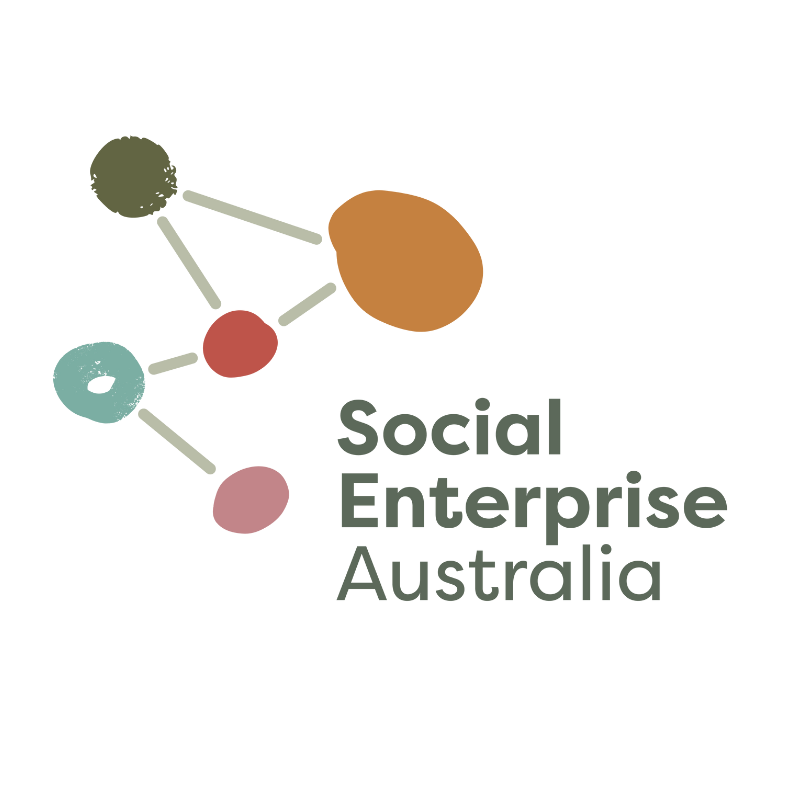October newsletter
I hope October brought moments of joy and connection.
With the warmer weather, I’ve been spending more time walking around rock pools with my two-year-old, which is both of these things for me.
I’m writing to share what we heard from stakeholders about SEA’s future governance, our next steps, as well as some updates and resources.
Your views on SEA's governance
Enormous thanks to all who shared your views to help design the shape of our future governance, by completing our short survey.
It was heartening to see a wide range of sector voices, engage with the survey. While most came from a social enterprise (71%), there was also representation across networked initiatives, intermediaries, philanthropic organisations, education and research centres, government, peak bodies and corporations.
A total of 383 people did the survey. Here are the topline results:
Most people surveyed (71%) want social enterprises to be voting members of SEA.
Beyond voting, most people (42%) think organisations of any kind and individuals should have a voice at SEA.
Most people surveyed want to participate in knowledge and learning, followed by sector-wide co-designs and consultations, and collaborations on a specific challenge.
We included some open-ended questions so that people could share things that we didn’t think to ask about.
Key themes from these questions are:
There is a desire for simplified, integrated membership; many expressed a desire for a membership model that allows social enterprises to join both their state or territory peak and SEA together.
People want clear, verifiable criteria for social enterprise membership.
There is support for diverse stakeholder voices being heard. People named the importance of ensuring that marginalised groups, smaller organisations and individuals impacted by social enterprises also have a voice.
While our governance cannot be what each person wants, the survey findings give clear high-level direction to the design of SEA’s governance and from diverse sector stakeholders, including marginalised voices, which we see as critical.
Our next step will be to discuss the potential for simplified, integrated membership with our state and territory peak body peers, given the findings included that many people want to see this. From there, the SEA board will review the survey results and details of those discussions with our peers, to decide SEA’s new governance structure.
You can read more on the survey results on our website.
Connecting and learning at SXSW Sydney 2024
Our collaboration with SXSW Sydney to open up the conference to social enterprises and some of the people they support was a huge success.
SEA distributed hundreds of free industry badges to the event on Gadigal Country, which celebrates what’s next in Tech & Innovation, Gaming, Screen & Music. We did this to link social enterprises to knowledge and networks and to create opportunities for people with lived and learned experience who may not otherwise have been able to be there.
Applications for badges were reviewed by a diverse panel, and badge recipients included:
73% social enterprise participants
29% people with disabilities
52% from culturally and racially marginalised backgrounds
30% identifying as LGBTQI+
18% travelling interstate
14% concession cardholders
5% Aboriginal or Torres Strait Islander.
There was a big rise in social enterprise representation at SXSW this year across program speakers, session topics, exhibitors, and mentoring engagements.
Leading social enterprises such as Who Gives a Crap, Project Rockit, Plate It Forward, LendForGood, Awesome Black, Black Magic Woman, The Social Outfit, Citizen Wolf, Taboo Period Products, OzHarvest, Accounting for Nature, and The Australian School of Entrepreneurship showcased their leadership in collaborative spaces, and highlighted the growing influence of social enterprises across industries.
New social enterprise sector guide
The Australian Library of Things allows members to borrow everything from gardening tools to board games, helping to reduce consumption and help meet Australia’s 2030 climate targets.
SisterWorks Inc. is a grass-roots social enterprise, grounded in lived experience, which closely supports migrant, refugee and asylum-seeker women towards economic empowerment.
Batyr focuses on breaking down the stigma surrounding mental health by empowering young people to speak openly and seek the support they need.
These are just a few of the social enterprises listed in the new sector guide on Understorey.
The guide is a starting point for understanding the areas of activity, types of actors, and their role in driving positive change in the sector. The pages were co-designed with 85 organisations, offering information and making it easier for users to find, connect and collaborate.
You can check out the guide or add your organisation on Understorey, our digital commons that is available to all.
Cheers,
Jess Moore

